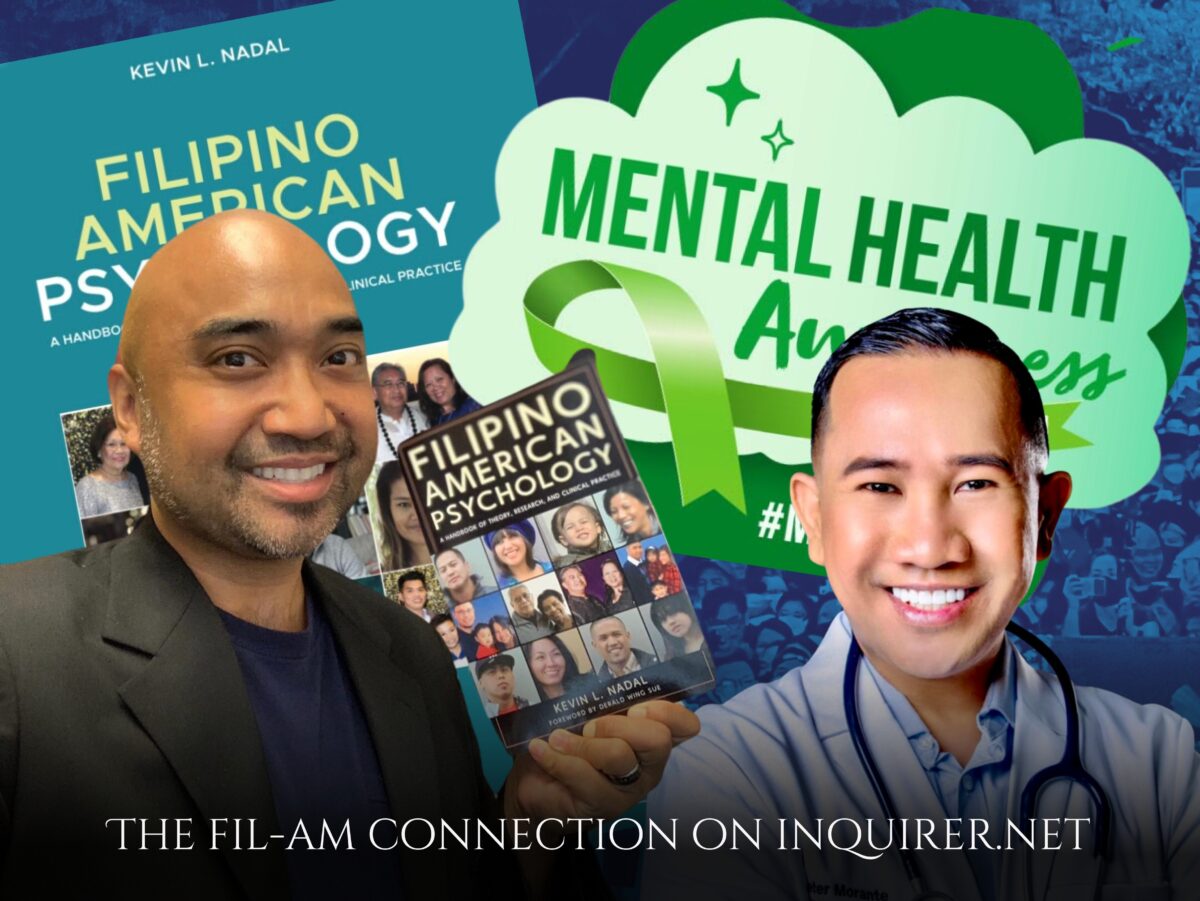How Fil-Am families can overcome mental health barriers

NEW YORK CITY—About six months ago, a family friend of mine unexpectedly stopped communicating with me. This was unusual for her, as she has always been vocal about keeping in touch with friends. When I finally reached out, I learned that her 14-year-old son had taken his own life.
This was a shocking revelation for the family, who had no inkling that their son was struggling with serious mental health issues. Was he bullied at school? Did he have gender confusion? Was he unhappy with his life or his family? They can only speculate now that he’s gone and no longer able to express his problems. My friend’s family is just one of many Filipino American families grappling with mental health issues.
Depression can lead to suicide, a leading cause of death linked to mental health problems. Open communication about mental health is crucial, not just to destigmatize the issue but to save lives. We should not be afraid to talk about mental health if it means saving a loved one’s life.
Despite the availability of scholarly articles on mental health, many families in the Fil-Am community still struggle to address these concerns or do not know how to support their loved ones. During Mental Health Awareness Month, this column aims to keep the conversation going, not just in May but all year long.
Dr. Peter Morante, a Los Angeles-based family medicine doctor and mental health practitioner with over a decade of clinical experience, states, “In Filipino culture, family serves as the cornerstone of social structure and identity. However, discussions surrounding mental health within Filipino families are often marked by silence, stigma and misconceptions. Addressing mental health issues requires open and effective communication between parents and children.”
Dr. Morante suggests several strategies to enhance communication about mental health within Filipino families. These include normalizing discussions to reduce stigma, encouraging parents to share experiences to make children feel more comfortable expressing emotions, and educating families about mental health and available resources through tailored workshops. Recognizing signs of distress and seeking help are essential. Respecting cultural values by acknowledging spirituality, family dynamics and community support can build trust. Parents should lead by example in mental health care, prioritize their own well-being and be open about seeking help.

Dr. Kevin Nadal, a psychology professor at the City University of New York and author of the first Filipino American book in psychology (left), and Dr. Peter Morante, based in Los Angeles, discuss insights on mental health within the Filipino American community.
Establishing safe, non-judgmental communication spaces and scheduling regular meetings can foster open dialogue, active listening and empathy. Providing bilingual, culturally relevant resources can help overcome language barriers and resonate more with Filipino families. Seeking professional help from culturally competent therapists can facilitate constructive family discussions and therapy sessions. Lastly, building resilience and support networks through strong family and community bonds, and engaging in cultural activities can promote mental well-being.
New York City Mayor Eric Adams has highlighted the city’s focus on mental health, acknowledging the rise in anxiety and hopelessness. He reaffirmed the commitment to addressing these issues by offering free tele-mental health services for teenagers and pursuing legal action against social media companies. Mayor Adams urged all New Yorkers to prioritize mental health daily.
Governor Kathy Hochul declared May as Mental Health Awareness Month in New York State, illuminating 15 state buildings and landmarks in green at dusk. This initiative aims to raise awareness of mental and behavioral health care and aligns with the Governor’s $1 billion mental health plan, which expands programs, funds new initiatives and emphasizes engagement at all service stages over several years.
Governor Hochul emphasized the prevalence of mental health challenges in New York and the importance of eliminating stigma. The FY 2025 Enacted Budget continues her efforts by allocating funds for expanding school-based mental health clinics, providing care to youth, supporting individuals with mental illness in the justice system and adding inpatient beds at psychiatric centers.
President Joe Biden also highlighted the national focus on mental health. “Mental health is a critical part of our overall well-being, and it is essential that we continue to break down the barriers of stigma and provide the necessary support and resources to those who need it. We must ensure that mental health care is accessible and equitable for all Americans,” POTUS said in a press release.
Dr. Kevin Nadal, an authority in psychology, provides a comprehensive guide to understanding and addressing mental health issues among Filipino Americans through his series of psychology books.
In “Filipino American Psychology: A Handbook of Theory, Research, and Clinical Practice, 2nd Edition,” Dr. Nadal explores cultural values, contemporary experiences, gender and sexual orientation intersections, multiracial identities and effective mental health treatment strategies specific to the Filipino American community. The book emphasizes the importance of historical traumas and offers insights through vignettes and case studies. It is a valuable resource for mental health practitioners and students seeking to serve the Filipino American population.
Mental health awareness is more than just a month; it’s a continuous call to action. By fostering open communication, educating ourselves and our loved ones, and utilizing culturally appropriate resources, we can make a difference. Let’s commit to breaking the silence, reducing stigma and providing the support needed to achieve mental well-being for all.
Together, we can build a future where mental health is openly discussed, effectively managed and universally supported. Let’s make this commitment not just for ourselves but for the generations to come.
For additional support and information, please reach out to local mental health organizations and professionals who are equipped to provide culturally competent care and support. Remember, seeking help is a sign of strength, not weakness.
– National Suicide Prevention Lifeline: 1-800-273-8255 (Available 24/7)
– Crisis Text Line: Text “HELLO” to 741741
– Mental Health America: mhanational.org
– National Alliance on Mental Illness (NAMI): nami.org
– Filipino American Mental Health Resource Center: aapiresourcecenter.com
Thank you for reading, and let’s continue to prioritize mental health in our community. By staying informed, supporting one another and leveraging available resources, we can create a more understanding and compassionate environment for everyone.

